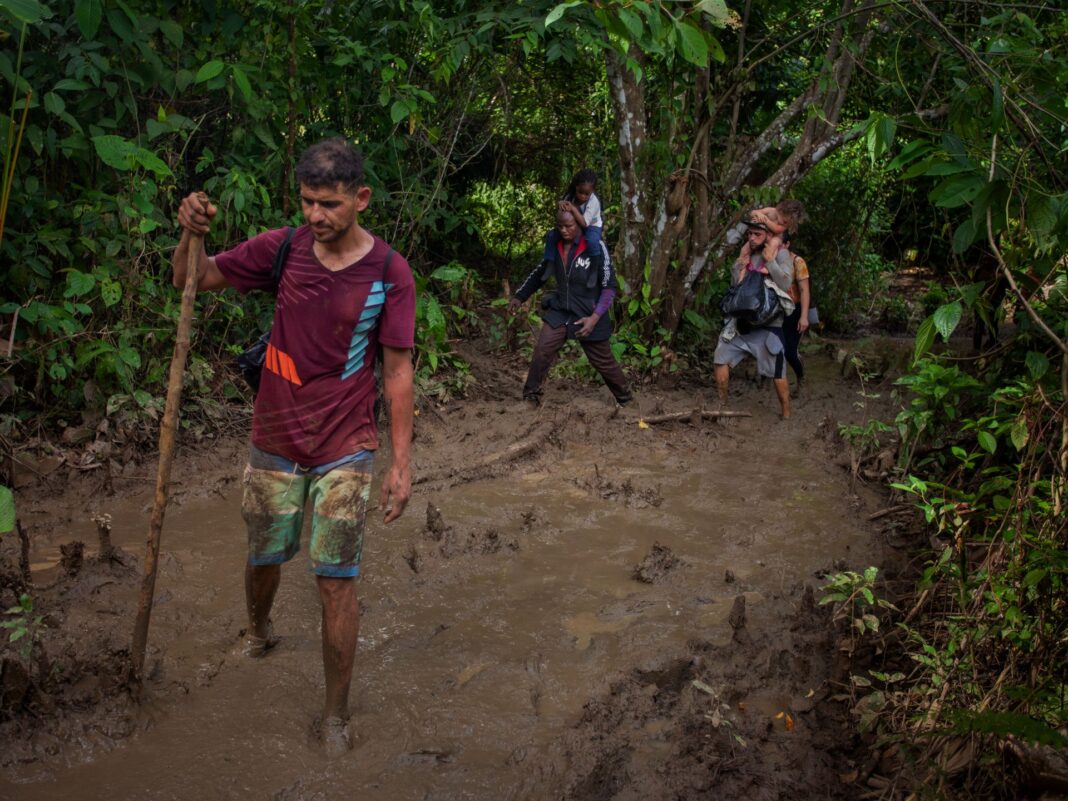Human Rights Watch has urged the two countries to ensure the safety of people crossing the dangerous migration route.
Colombia and Panama have failed to protect hundreds of thousands of migrants and asylum seekers crossing a dangerous yet popular jungle migration route between the two countries, Human Rights Watch (HRW) has said.
In a report on Wednesday, the rights group said the Colombian and Panamanian authorities have not protected people transiting through the Darien Gap or adequately investigated abuses that have taken place there, including sexual violence.
“Whatever the reason for their journey, migrants and asylum seekers crossing the Darien Gap are entitled to basic safety and respect for their human rights along the way,” Juanita Goebertus, HRW’s Americas director, said in a statement.
“Colombian and Panamanian authorities can and should do more to ensure the rights of migrants and asylum seekers crossing their countries, as well as of local communities that have experienced years of neglect.”
Connecting South and Central America, the Darien Gap is a dangerous route rife with natural hazards, including insects, snakes and unpredictable terrain. Its landscape ranges from steep mountains to dense jungles and strong rivers.
Criminal groups also operate in the area, and robberies, extortion and other forms of violence are widespread.
Despite these dangers, it has become an extremely popular migration pathway for migrants and asylum seekers fleeing violence, socioeconomic crises and other hardships in their home countries. Many hope to travel north to reach the United States.
The number of people passing through the area has repeatedly broken records, as migration northwards increases. More than 520,000 migrants and asylum seekers crossed the Darien Gap last year, more than double the total from 2022, according to figures from Panama’s government.
Of those who crossed in 2023, more than 60 percent were from Venezuela, which has experienced a mass exodus amid years of socioeconomic and political upheaval. Others were from nations across South America, the Caribbean, Asia and Africa.
In its report, HRW said the Colombian government’s limited presence in the Darien Gap allows migrants and asylum seekers “to be preyed upon” by members of a drug-trafficking group known as the Gulf Clan.
The group “controls the movement of migrants and asylum seekers and profits from their desperation and vulnerability”, the rights group said.
HRW urged the Colombian authorities to investigate the Gulf Clan’s role in taking people across the Darien Gap. It also called on Bogota to devote more resources to the protection of migrants and to probing alleged abuses.
But HRW’s report said that “most of the abuses in the Darien Gap, including robberies and sexual violence, occur in Panamanian territory”.
Panama has implemented a so-called “controlled flow” strategy to respond to the surge in Darien Gap crossings. Under the policy, it has established migrant reception centres and allows people to board buses to Costa Rica.
HRW on Wednesday criticised the scheme for imposing restrictions on peoples’ ability to seek asylum and limiting humanitarian protections.
“It appears focused on channeling and restricting migrants’ and asylum seekers’ movement through Panama and ensuring that they cross to Costa Rica promptly, rather than responding to their immediate needs or providing them opportunities to file asylum applications in Panama,” its report said.
The organisation urged Panama’s government to modify its strategy.
It also said the country should appoint a senior official to oversee its response to the Darien Gap in coordination with the United Nations and other humanitarian groups.







